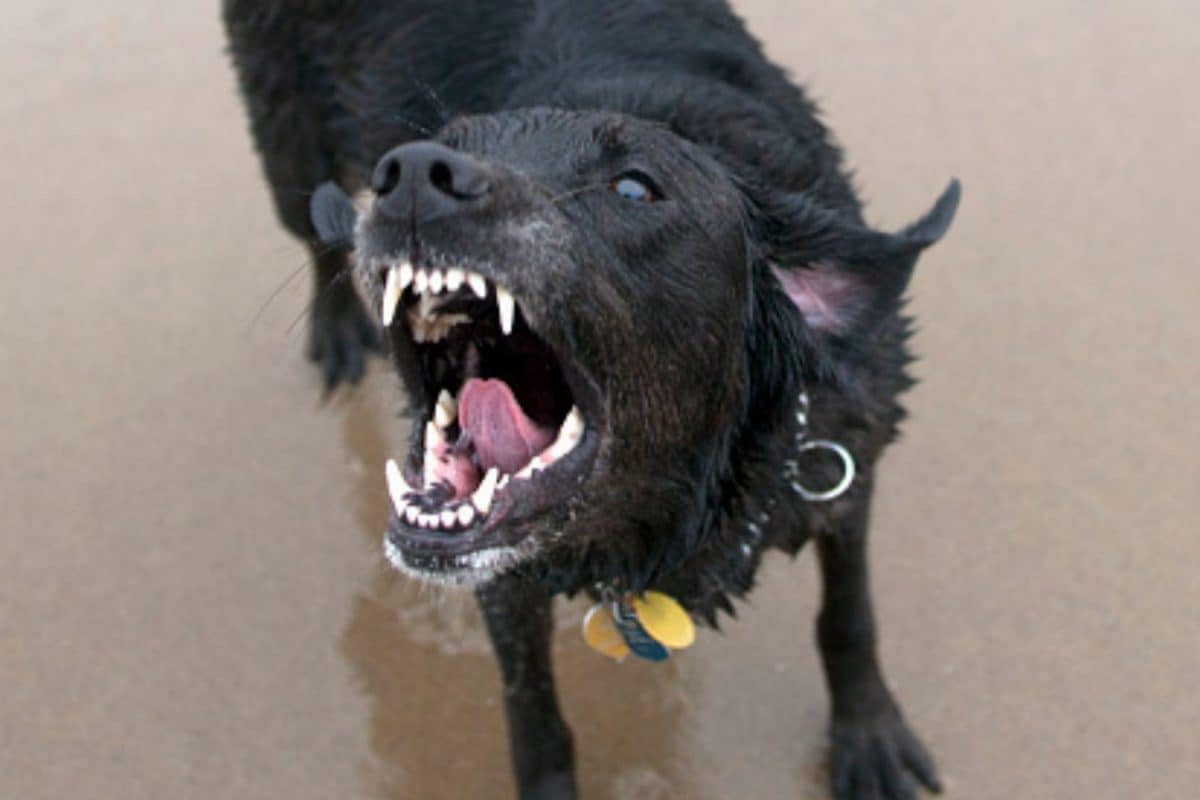Beware of Rabid Dogs: How to Recognize the Disease and Protect Yourself
National NationalPosted by AI on 2025-09-10 09:04:07 | Last Updated by AI on 2025-09-10 14:08:47
Share: Facebook | Twitter | Whatsapp | Linkedin Visits: 0

So, what should you do if you're bitten? Hopefully, not anywhere near the mouth...
If you're out and about and see a dog behaving strangely, or you've been bitten by an animal you think may have rabies, get away quickly and contact local health authorities, or dial 911. While the disease is rare in North America, still, 60,000 people worldwide die from it every year. Most of these cases are due to dog bites, though it can also be transmitted through bites from foxes, bats, monkeys, and raccoons.
Fortunately, deaths from rabies in North America are virtually unheard of, thanks to the availability of the rabies vaccine for dogs and timely administration of post-exposure prophylaxis (PEP), which involves a series of vaccinations given to someone who has been exposed to the virus.
If you're a dog owner, by law, your pet probably already has had the vaccine. Still, it's worth checking that your dog's rabies vaccination is up to date, as rabies returns with a vengeance in places where dogs are not vaccinated. Recently, several cases in the US involved dogs imported from countries where rabies is common, or dogs that were vaccinated but did not receive a booster shot.
These cases illustrate the importance of booster shots, which provide ongoing protection for your pet and help prevent the spread of the disease, should your dog come into contact with a wild animal that has rabies.
If you're bitten, wash the wound thoroughly and see a doctor right away. And if it's your pet that bit someone, contact public health immediately. Your pet will need to be monitored and may need to be isolated and tested for rabies, depending on the state where you live.
Timely administration of PEP, including the vaccine and immune globulin, can prevent rabies in anyone exposed. It's a painful lesson, but one that ultimately saves lives.
Search
Categories
- Sports
- Business
- National
- Investments
- History
- Politics
- International
- Science & Technology
- Social Issues
- Disaster Management
- Current Affairs
- Events & Jobs
- మన పార్టీ
- మన నాయకత్వం
- మన విజయాలు
- డౌన్లోడ్స్
- మీడియా వనరులు
- కార్యకర్తలు
- రాజకీయం
- బిజినెస్
- సంపాదకీయం
- నవ్య
- చిత్ర జ్యోతి
- క్రీడలు
- జాతీయం
- తెలంగాణ
- తాజా వార్తలు
- Fast Check
- South
- Gallery
- Sunday Chronicle
- Hyderabad Chronicle
- Technology & Innovation
- Innovations and Initiatives
- బిజినెస్
- North East Skill Center News
- Government Schemes
- Entrepreneurship Support
- Employment Opportunities
- Skill Training Programs
- Education
- Startup Business
- Startup News
- Awards
- Community Services
- Fundraising Events
- Volunteer Services
- Health Initiatives
- సినిమా
- లైఫ్ స్టైల్
- క్రైం
- ట్రెండింగ్
- జాబ్స్
- అంతర్జాతీయo
- Market Buzz
- Awards
- Partners
- Products
- Press Releases
- News
- Departments
- Initiatives
- Resources
- Telangana IT Parks
- Press Releases
- News
- Airport News
- Sports
- Business
- Newtons Laws of Motion
- Karbonn in Business
- Investments in Karbonn
- Company quarterly sales
- Markets
- Auto News
- Industry
- Money
- Advertisements
- Stock target
- Company Updates
- Stock Market
- Company Sales
- Staffing and HR
- Constituency Assembly
- General News
- Srikalahasti Temple
- Bojjala Sudhir Reddy
- Products
- Industries
- Services & Trainings
- Tools & Resources
- Technology Integration
- Drug Seizures & Arrests
- Telangana Narcotics
- Law & Enforcement
- Rehabilitation
- Nationwide Drug Policing
- Nigeria Seizures
- Global Operations
- Drug Awareness
- Drug Enforcement Tech
- NCB Drug Seizures
- Judicial Crackdown
- India's Surveillance Tools
- Cross-Border Links
- Women Safety
- Cyber Crimes
- Drug Abuse
- Traffic & Road Safety
- Community Connect
- Public Safety Alerts
- Citizen Assistance
- Nellore City News
- Politics & Administration
- Events & Festivals
- Agriculture & Rural
- Business & Economy
- Health & Wellness
Recent News
- The United Nations General Assembly Declares July 6 as World Rural Development Day
- Ghana's Record on Cocoa: Welfare of Farmers Remains a Priority
- Sheep Producers Must Limit Use of Dogs and Comply with New Welfare Plans to Maintain Market Access
- India Takes Semiconductor Mission to Advanced Level
- Study Reveals Little-Known Defence Mechanism in Steel Truss Bridges
- Elon Musk Expands His Philanthropic Efforts With Another $1 Million Donation
- Urban Company IPO Gets 3.3x Subscription On Day 1: Should You Apply?
- ICC Womens ODI World Cup: Sri Lanka Announce Squad, Chamari Athapaththu To Lead